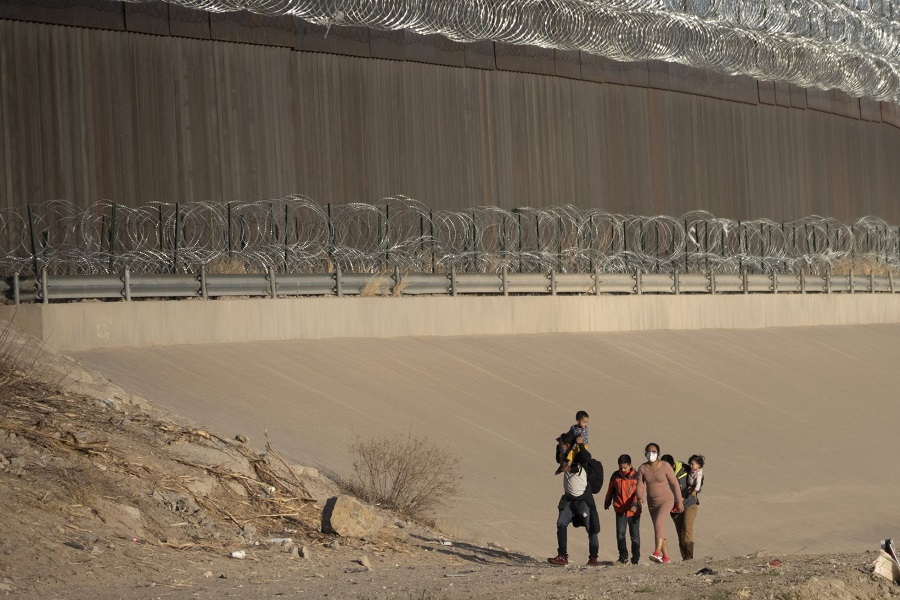RIO DE JANEIRO, BRAZIL – “What used to be almost exclusively Mexican migration changed in 2019 with the amount of people from Honduras, El Salvador and Guatemala. Poverty and violence were the main drivers. Another main difference was the strategy of traveling as a family, which increases overall numbers,” says Harvard College of Education professor Gabrielle Oliveira.
Traveling as a family theoretically improves the chance of staying in the U.S., according to the professor. “Qualitative research shows a school district where the amount of Brazilian children in schools has tripled, for example. So there are more family groups arriving than individual adults,” she explains.

The migration crisis in the U.S. has been breaking records due to three factors: the pandemic, economic hardship in the countries of origin, and the inauguration of President Joe Biden, who pledged to adopt a more humane approach, but instead continues to pursue the policies of his predecessor Donald Trump, such as mass deportation.
This fiscal year, the U.S. has recorded the arrival of 1.9 million migrants, compared to 646,000 in the same period in 2020 and 859,000 in 2019.
Among the migrants were Brazilians Maria and Roberta – whose real names they requested to be protected. The dream of a better life, R$30,000 (US$5,310) spent on the crossing, and different destinations separate their story. Maria was deported to Haiti with her daughter and Haitian husband. Roberta spent 3 months detained before reaching Massachusetts.
After Mexicans, the second largest group of barred migrants – 367,000 people – includes Haitians, Venezuelans, Cubans and Brazilians. According to U.S. Customs, 58,059 Brazilians were detained in 2021, more than the total of the previous 3 years, when 45,000 tried to cross the border.
When Roberta, 33 years old, decided to leave Espírito Santo, the plan was to take her 7 year old son with her. But, at the last minute, she decided to leave him with her mother. When she reached the U.S., she was arrested with other immigrants and it took her 97 days to find her relatives who live in Denver. “If I had my son with me, I wouldn’t have stayed in jail for 7 days. But I was afraid,” she said.
With Italian citizenship, Roberta believed she would stay in the U.S.. She received a schedule from a coyote while still in Espírito Santo and paid R$30,000 – because “he was an old family acquaintance,” she said. The Brazilian left in May. After a flight to Mexico, she started the crossing with 5 people. “I walked a short distance, through the desert, for about 30 minutes, 15 of them through the sand. I knew that at any moment we could be arrested. And it happened.”
When she was detained, Roberta had her passport seized, was searched and interrogated. Then she was locked up in a cell. “On the fourth day they took us to a tent, with a mattress for each of us,” she said. After a few days, she was put on a bus. She believed she would be released, but she was not. “We were handcuffed, hands, feet and waist. They put us on a plane and took us to a prison.”
Roberta managed to contact her family 8 days after reaching the U.S. In prison, she was allowed 15-minute phone calls and was able to talk to her mother and son. She had crying crises and says she shared a cell with Cuban, Venezuelan and Haitian women. “It’s agony, you think you’ll never get out of there.”
One morning, Roberta was called, took the Covid test and was sent to a church. “You are free,” the guards said. “So I called my uncle, who bought me a ticket and I left to Massachusetts.” Now she is waiting for the hearings to get her papers and stay in the U.S..
Brazilian Maria flew from São Paulo to Mexico with her 1-year-old daughter and a Colombian friend on September 15. From there she bought a ticket to a city on the U.S. border and joined her husband, Haitian Carlos. The three headed to Texas.
Carlos had left São Paulo on July 5, took a flight to Campo Grande, from where he traveled through Bolivia, Peru, Colombia and Panama. “He spent 3 days walking through the jungle with no food, he witnessed several people dying,” Maria says.
“In Mexico, the family hired a coyote, tasked with paying the police and negotiating the trip. “Every country my husband reached, the police officers had to be paid,” Maria said. After crossing the border, they turned themselves in to U.S. authorities. “We stayed in Texas for 4 days, sleeping on a sheet on the floor. There were many people, more than 5,000. We gambled everything we had on that goal.”
It was a disappointment. The family was deported to Haiti, where they have been for almost a month. Now, the 3 are trying to return to the country and are counting on an online fundraising campaign. “We spent all the money we had saved, about R$30,000. We don’t know what to do to go back.”

